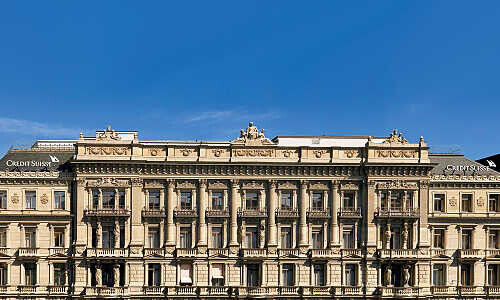The billion-dollar debacles of Greensill and Archegos Capital undermine the Swiss bank's $324 billion sustainability push.
Last June, the Zurich-based bank won plaudits by naming Lydie Hudson CEO of sustainability, research, and investment solutions – the first time a global universal bank anchored the topic with one executive in top management. The U.S. investment banker's appointment came with 300 billion Swiss francs ($324 billion) over the next ten years.
The move was a bid to lend more weight to Credit Suisse's «statement on sustainability», based on the Swiss bank's code of conduct and describing in detail how it wants to balance its activities economically, ecologically, and socially. «Our success depends on the trust of all our stakeholders,» according to the statement.
Torched Reputation
Eight months later, the statement rings hollow: Credit Suisse lost 4.4 billion francs unsuccessfully disentangling itself from Archegos' collapse and likely several more with Greensill. More importantly, it took a lit match to its reputation, values, and ability to survive without help.
Credit Suisse itself seems to view the dual crises as a sort of natural disaster which it simply couldn't have seen coming. CEO Thomas Gottstein and the bank's board appear convinced the strategy as «a leading private bank and wealth manager with strong investment banking capabilities» is the right one.
Front Office Vs Casino
An outsider's perception of Credit Suisse after the events of March alone is that the front of the house is doing sensible, safe business while the back of the house is operating a casino which imperils everything else.
This is the standard flaw of Credit Suisse's (and UBS') strategy that the three main businesses – a domestic retail and corporate division, an international private bank, and a global investment bank – carry an inherent conflict of interest. With the sustainability strategy, in particular, Credit Suisse's investment bank with trading activities wildly out of proportion to the rest of the bank's size is a huge contradiction.
Booming Capital Markets
Powered by a financial market awash in liquidity, the unit delivers hugely volatile results which – it is now apparent – are based on taking immense risks. Besides the $4.7 billion Archegos hit, Credit Suisse is in the midst of the boom in SPACs, or special-purpose acquisition companies being used for stock-listings. This and other capital markets business boosted its results to a record (before Archegos).
The activities Credit Suisse does best at the moment have little to do with sustainability – quite the opposite, as rating agency Fitch noted when downgrading the lender's outlook to negative. The accumulation of financially damaging events may be a sign of «deficiencies in governance and controls». At the same time, Fitch lifted its so-called ESG relevance score, which evaluates risks and sustainability.
Client Demand For ESG
ESG ratings are an increasingly important factor in research and analysis: corporate sustainability strategies can have a material financial impact on companies, in view of ecological or reputational risks. Credit Suisse's efforts in this area are also rooted in client demand, especially by the clientele of the future.
The bank describes the values of millennials – a potentially $40 billion market – with a far stronger focus on social and environmental considerations than their parents. Credit Suisse, lacking credibility and strategic foresight, risks alienating these clients.




































